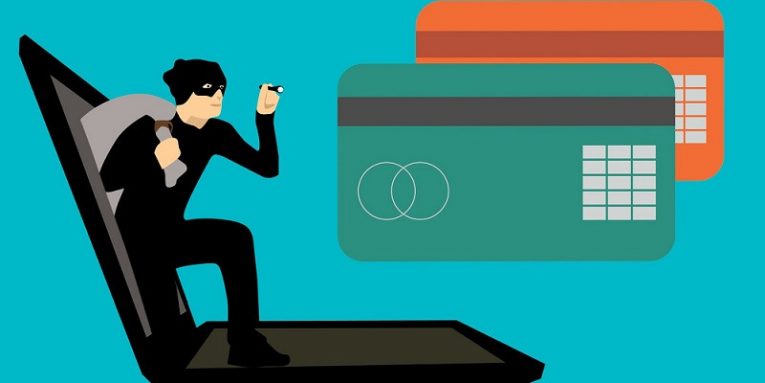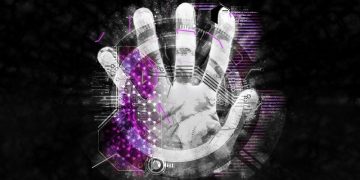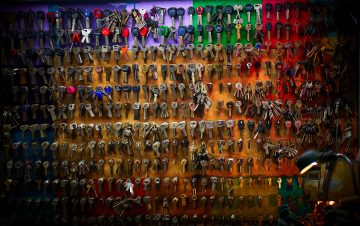3 Ways That Our Financial Data Is at Risk of Being Hacked

All kinds of sensitive and personal information are targeted by cybercriminals every day. One of the scariest situations is when hackers succeed in getting their hands on our financial data as it could endanger our wellbeing. Unfortunately, cybersecurity experts predict the credit card scams, especially, the so-called card-not-present fraud cases will continue to grow. Naturally, to prevent this from happening, it is crucial to be educated in methods hackers use to obtain such sensitive information or make the victims reveal it unknowingly. If nothing comes to your mind, we strongly encourage you to read our full blog post so you would learn how cybercriminals might try to scam you and how to react in case they do. Another thing we would like to talk about in this article is what extra precautions all of us can take to protect our financial data.
What are the methods hackers usually use to steal financial data
A call from hackers posing as bank representatives
Even though growing technologies create new opportunities for cybercriminals, some hackers still call their targeted victims over the phone and pretend to be employees of trustworthy companies. In this case, the attackers should pretend to be from the victim's bank. Usually, they claim someone is trying to get into the user's account and steal his funds. Next, the criminals may start asking for various sensitive information that could put user's financial data at risk, for example, his account's number, date of birth, address, telephone number, and so on. If the user falls for the scam, they may even ask for his login credentials. As an explanation for such a request, they may say it is needed for verification or to change the compromised password. The truth is, there are many variations of what hackers could say, as it all depends on how gullible the victim is. Not to mention, similar attempts to gain financial information could be made via email too.
Card skimming or card copying
Skimmers are small devices that can read financial data on credit or debit cards. Such information can later be used to clone the user's card. Usually, such devices are implanted on ATM machines. All the criminals have to do is find an unguarded ATM device and then attach the skimmer to it. After some time, the hackers go back to the modified machine to collect the device and all sensitive information recorded on it. Some criminals install cameras to see the entered PIN codes too, which makes it easier to use the cloned card. Also, you should be aware that card skimming could happen just about anywhere, for example, at a café, bar, shop, and so on. The person pretending to be the cashier or waiter could swipe your card while you are not watching as skimmers are small and can be portable too.
Advanced attacks from hackers with technical knowledge
The previous methods mostly rely on victims being easy to convince or not attentive enough to notice skimmers attached on the ATM machine, but some hackers employ their technical knowledge alone. Such cybercriminals often buy data about victims on the dark web and then increase their expertise on the targeted users by recording information from their social media profiles. All of this is needed to be able to impersonate the victim perfectly. The next step could be hacking into the user's phone and then connecting to his banking application. Moreover, some hackers know how to call the victim's bank by making it look like the call is made from his phone. If they succeed in changing the user's email address with their own, they can reset the banking account's password. No doubt, if the cybercriminals can hack the accounts, all of the victim's financial data and his funds could be in danger.
How can you protect your financial data
Watch out for suspicious calls
Always keep in mind that bank representatives would never ask for your login credentials or other sensitive information that could put your financial data at risk over the phone or email. Thus, if you receive a call saying there is something wrong, and the person starts asking for personal details, you should be extra careful. Instead of telling the pretenders anything, you could say to them you will have to call them back and then contact your bank to ask whether someone from their staff did call you. If not, you should report the scam and ask the bank to check if there are no suspicious activities on your account.
Be cautious when using ATMs
Before inserting your card, always check if there is nothing suspicious about the machine. Perhaps, the keyboard or the part to insert the cards looks unusual or loose? If so, it would be smart to look for another ATM machine just to be safe as well as inform the bank there might be something wrong with the device. Besides, to avoid getting your PIN code filmed, be sure you cover the keyboard with your other hand when typing it. In case hackers implanted a camera above it, they will be unable to capture your code if they cannot see what you type.
Do not give out your personal information easily
Various unreliable websites may ask to fill your personal data for surveys or in exchange for freebies, free access to games, etc. No matter how tempting or interesting the offer might look, you should never submit your private or sensitive data without making sure the website receiving it will not use it for malicious purposes or sell it to other interested parties. Some web pages ask for data that might put your privacy or financial data at risk during registration, so it is crucial to make sure the site you are registering to is reputable. For more tips on how to protect your personal information both online and offline continue reading here.
Do not take your eyes from your card
When shopping or dining out, users should be careful when the time to pay comes. Nowadays, most waiters bring the card reader to the table and shops place them so the users could pay with the card without the cashier's help. However, there might still be places where the staff may take your card, and, in such cases, it is important to be alert. Perhaps, not everyone is out there carrying a skimmer that could clone your card, but it might take only one careless transaction to put your financial data at risk.
All in all, hackers might be coming up with new tactics, but there are still a lot of them who depend on already tested methods. Therefore, knowing all the possible scenarios may prevent you from revealing your financial data to scammers and putting your wellbeing at risk unknowingly. In other words, the key is staying alert, and when it comes to sensitive information like financial data, you can never let your guard down.








